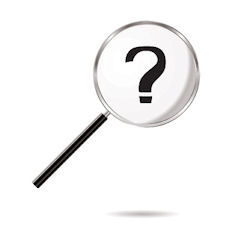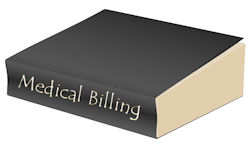Medical Billing FAQ Medical billing is vast field with many options.
Medical billing is vast field with many options.
Choosing a specific career, certification, or specialty that interested you can help when attempting to select an institute in which to obtain your education. It is also common for those who are interrested in billing to consider medical coding. Understanding the difference between the two can strongly influence education decisions, career options, and certifications. Frequently Asked Questions:
Medical billers are also responsible for claim submission to the insurance companies, tracking payments and denials, appealing denied claims, billing individual patients, and receiving claim payments.
What Type of Education is Required to Become a Medical Biller?Currently a single standard that is widely enforced by all organizations does not exist.Smaller private offices still hire individuals who only have experience or some education, while larger facilities require extensive education and/or prior experience. Often the right education is still enough to obtain an entry level position and allow individuals to earn the much sought after "experience". There are several types of credentials an individual can become certified in. The "right" type of certification will depend on the area of medical billing that the individual chooses to pursue. Types of Certification Include:

Both of these certifications are offered by organizations that are still quite new and gaining their recognition. These certifications are not yet a standard and are not commonly required by employers. Although these credentials are great compliments to existing education and/or experience it is not suggested individuals starting out with neither higher education or experience obtain these certifications alone when pursuing this career path. CHDA and CHPS: These CHDA and CHPS are both offered through the American Health Information Management Association (AHIMA). AHIMA is a long standing company that is highly recognized among the medical community for several of their other certifications. Both certifications require individuals to have a minimum of a bachelor's degree and prior experience. These credentials signify mastery in specific specialty areas. Individuals holding such credentials may pursue higher level administration, management, or executive position within these specialties. While these two certifications are great compliments to existing education and are wonderful goals they are not intended for the beginner. RHIT: This certification requires an associate's degree and is the most recognized, required, and/or sought after credential among employers in the medical billing community. This certification enables individuals to obtain entry level positions and may later enable them to transition to administrative positions within the billing department. This certification is also commonly held by entrepreneurs and small business owners. RHIA: This certification is similar to the RHIT but requires an additional two years of degreed education (bachelor's degree). The RHIA allows individuals to bypass entry level position and focus on administrative management and executive position within the billing office. CMA-A: The Certified Medical Assistant with an Administrative focus (CMA-A) is a flexible certification that requires a one year program but can also transition into an associate's degree if desired. This certification allows individuals to entry billing and administrative positions mainly in private practices and also allows them to work in the clinical area if desired.
This certification offers several career options in multiple environments.
CMRS or CMBS: Educational course that will prepare individuals for these certifications can be taken through the American Medical Billing Association or the Medical Association of Billers. RHIT: RHIT certification can be obtained through the American Health Information Management Association (AHIMA) once the academic requirements are met at an associate's degree level, of a HIM program, accredited by the Commission of Accreditation for Health Informatics and Information Management Education (CAHIM). Any local college or university offering an RHIT associate's program can tell you if they are an accredited HIM program or not. CMA: The certified medical assistant credential is obtained through the American Association of Medical Assistants (AAMA). In order to take this exam you must first meet the the academic requirements, of an accredited program, by the Commission of Accreditation of Allied Health Education Programs (CAAHEP) or by the Accrediting Bureau of Health Education Schools (ABHES). Colleges or universities offering medical assisting programs can tell you if they are accredited by either of these two organizations or not. While the CMA program can be rolled into an associate's degree this is not required for taking the certification exam. RHIA: RHIA certification can be obtained through AHIMA once the academic requirements are successfully completed, at the baccalaureate level, of an HIM program, accredited by the Commission on Accreditation for Health Informatics and Information Management Education (CAHIIM). CHDA: The CHDA certification can be obtained through AHIMA. Pre-requisites for the exam include:
or
CHPS: The CHPS certification can be obtained through AHIMA. Pre-requisites for the exam include:
or
or
What is the Annual Salary of a Medical Biller?The US department of labor sates that the medical billing industry has seen a steady increase in annual salary every year since 2000.Salaries starting at $24,390 in 2000 were up to $30,940 in 2007.These statistics are averages and will vary according to geographic location, the economy, credentials held, experience, and the specialty (Ex. optometrist statistically pay less than nursing care facilities.) In 2004 it was reported that private consultants were billing an average of $25.00 per chart or $100.00 per hour for chart auditing, and were auditing an average of 50 chart per day.
According to salary.com the average salary in 2008 was between $35,999-$44,562.
|
Coding CredentialsIt is very common for medical billers to hold dual certifications, with one usually being a medical coding certification.Holding a medical coding credential not only gives billers a competitive edge, but also provides multiple career options and advancement opportunities. CMA BenefitsThere are many benefits to choosing the CMA credential.This certification:
~ Requires the least amount of education  According to the National Coalition on Health Care, in 2008 the U.S spent approximately 17% of it's GDP on health care. This number is projected to rise by 20% by 2017 due to aging population, rising health costs, and technological advancements.
|
|
|
According to the Bureau of Labor Statistics "Employment is expected to grow much faster than average...employment of medical records and health information technicians is expected to increase by 20% through 2018" RSS information
Enjoy This Site?
Then why not use the button below and add us to your favorite bookmarking service? |
||
|
| ||


 Where you obtain your education will depend on the type of certification you wish to pursue.
Where you obtain your education will depend on the type of certification you wish to pursue.
